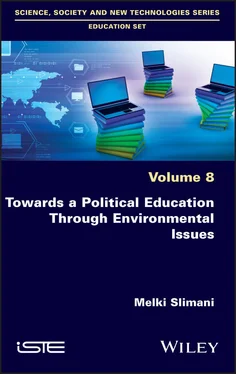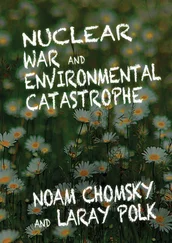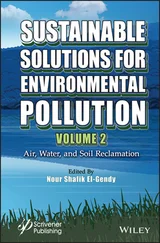Research in the SNM perspective focuses on the niche level by emphasizing user participation in any early technological development. This approach has been inspired in part by historical studies showing that many successful innovations started as niche technologies and gradually overturned a dominant regime. The main concern of the SNM perspective is to establish processes by which innovative experiences can evolve into viable market niches to contribute to a shift towards a more sustainable socioeconomic environment (Twomey et al . 2014).
Research in the TM perspective takes a broad system perspective that encompasses the three levels of the MPL perspective framework. It is concerned with the dynamics of structural change in society and the appropriate manner and timing for initiating, facilitating or shaping transformation. As in the MPL perspective, the importance of experimentation and learning is central. However, the starting point for the TM perspective is not a technological innovation but a societal challenge, such as how to meet the demand for energy, transportation or housing in a sustainable manner (Twomey et al . 2014).
1.3.6.1. Approaches to transition research
Loorbach et al . (2017) broaden the themes of transitions by proposing a distinction between three research approaches to study them: the socio-technical approach, the socio-institutional approach and the socio-ecological approach. This distinction is based on a comparison of their respective methodological focuses and objectives.
The socio-technical approach exhausts its references in scientific and technological studies. This approach relies on the MLP perspective as the main analytical tool with the technological innovation systems (TIS) framework.
The socio-institutional approach draws on the social sciences to understand systemic change in complex societal systems by drawing on economics, political science, sociology, governance studies and geography. It identifies institutionalized cultures, structures and practices as regimes in which transitional changes are taking place. The socio-institutional perspective applies especially to societal systems facing persistent environmental challenges such as mobility, waste management and energy (Loorbach et al . 2017).
The socio-ecological approach is based on knowledge from ecology, biology, the theory of complex adaptive systems and adaptive governance. It is rooted in ecology and resilience theory, seeking to understand instability in ecosystems, and has evolved to examine coupled socio-ecological systems (Loorbach et al . 2017).
1.3.6.2. Power relations in transitions
In the studies on transitions, Avelino and Wittmayer (2016) discuss four types of explicit treatments of the notion of power: a mechanistic perspective, a governance perspective, a horizontal perspective and an emancipatory perspective.
In the mechanistic perspective, power relations between collective actors (mainly industrial policy makers) constitute a causal mechanism of the targeted change. This type of change is perceived as a result of conflicts, power struggles, protests, lobbying, coalition building and negotiation between these actors and different social groups. Such a change thus results from a change in the power relations between the actors involved (Avelino and Wittmayer 2016).
From a governance perspective, transitions are conceptualized as changes in the dynamics of power relations and the struggle for dominance (Voß and Bornemann 2011) involving, in addition to individual actors, citizens and civil society (Geels and Schot 2007). Three levels of power are distinguished:
– the relational aspect related to the immediate interactions between the actors reflecting their interests;
– the dispositional aspect related to the rules and resources available and to the dominant representations of the actors;
– the structural linked to broader orders of signification and legitimization (Hofmann 2013; Geels 2014).
From this perspective, it is impossible to reduce the political character of socio-technical transitions to sustainability (Meadowcroft 2009; Voß et al . 2009).
The horizontal perspective is based on a qualitative typology of power relations. It asks how different actors (government, non-governmental organizations, citizens and scientists) manage to exercise power relations at different times (Avelino and Wittmayer 2016).
The empowerment perspective refers to emancipation in a broad sense as a process of empowerment (Avelino 2009, 2011). According to this perspective, the management of a transition is a kind of empowerment of niches by facilitating their grouping as well as the emergence of regimes that can eventually take over or replace regimes that are in place.
The management of socio-technical transitions constitutes a new concept of piloting the dynamics of this type of system which goes beyond the managerial conception generally associated with the idea of management control: the starting point of transition management is in fact “complexity and uncertainty”, allowing a limited degree of steering with such societal dynamics (Rotmans 2005; Paredis 2013). Human geography criticizes the technocracy within the managerial perspective of socio-technical transitions for being “geographically naive” by conceptualizing space and transferability beyond a narrow range of case studies. Political ecology, a field of human geography, explicitly addresses the problematic power relations that underlie the production, transmission and sharing of knowledge and technology in socio-technical regimes (Lawhon and Murphy 2011).
The management of socio-technical transitions is also considered as a reflective and participatory mode of governance, which aims to orient socio-technical systems towards social goals by engaging actors at several levels and putting ideas to the test through experimentation, learning and adaptation as factors of change.
The transitions of socio-technical systems to sustainability have also taken the form of social movements such as the “cities in transition” movement in Belgium (Costa 2013; Kenis and Mathijs 2014). It represents a new culture that is developing: the culture of transition interpreted as a hybrid social and environmental movement (Neal 2013). Nevertheless, these social movements are not free from the pressures of depoliticization that can originate from different sources.
1.3.6.3. The trend of depoliticization in transition issues
There is a trend towards depoliticization in transition issues (Scrase and Smith 2009; Hess 2014; Kenis and Lievens 2017). Jhagroe (2016) identifies three origins of this trend in relation to different political frameworks.
The first origin is the conception of politics as a fundamentally institutionalized struggle that considers political institutions as the guarantor of any negotiation without taking into account the historical contingency of these institutions. The result is an institutionalized politics of transitions that does not take into consideration the ideological character of the institutions themselves (Jhagroe 2016).
The second stems from a liberal or neo-liberal conception of politics that assumes that political actors are free and equal individuals in a public debate specified in terms of economic (market) negotiation (deliberation). This conception favors market dynamics as well as economic procedures as the terrain of struggle (Jhagroe 2016).
The third stems from an anthropocentric conception of politics that introduces a segmentation between nature and culture and between physical and social systems. The underlying assumption in this conception is that human beings are fundamentally different and often superior to animals, plants and other materials. This “human supremacy” is often unchallenged (Jhagroe 2016).
Читать дальше












